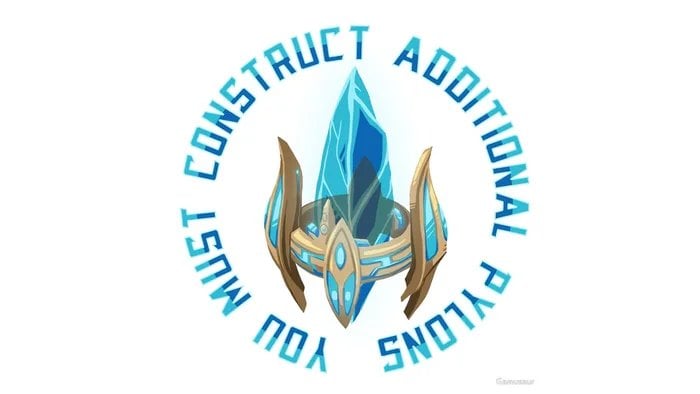Hello everyone I am an avid practitioners of martial arts. Started with Judo and Jiu Jitsu. Then my health and phisical condition degraded due to external causes. I switched to Aikido for three years and now Tai chi chuan, which I am now strongly committing to.
Aside from obvious positive effects (balance and agility) I wonder what you all think about inner martial arts.
I tend to ingest as little taoist folklore as I can, not because I think it’s not interesting, but I want to avoid the exotic sounding mysticism tailored to impress westerners as a kind of new age marketing strategy. Fortunately, my teacher is a medical doctor working in the field of work related injuries.
I know I love Tai Chi Chuan and I truly mean to get better at it, but I can’t ignore all the… weird stuff connected to it (no, Mr. Grand Master, I refuse to think that you single handedly pushed 10 people by the power of chi mastery). At the same time, I’ve been impressed by how, sometimes, finding adequate balance can make you able to sustain a strong push without even making active use of muscular strength.
So Il just wondering how you feel about this (or the other) inner martial art.
For me, it’s a demanding and rewarding practice, full of great health and self discipline benefits and a few truly impressive perks, but with a…weird decorum I can’t begin to understand.
This reminds me of my struggle with yoga.
Stretching: good. Magic energy: sigh…
I tried Aikido for a while and did some Qui Gong as well. I see your point about the BS floating around, but the physical and also mental benefits are undeniable. It may vary from person to person, the same way some people can’t meditate, some won’t get anything from these types of activities.
I like them. Make sure to put all of your XP into CHI.
Eh, I find it easy to ignore the woowoo bullshit. Always have.
That being said, the benefits are there. It’s a form of meditation, and exercise, all rolled into one. That’s always a good thing.
Now, I enjoy the Taoist and Buddhist stuff. On paper, that’s the religions I give when a quick and simple answer is needed. The Buddhist side of things actually is as close to religion as I get nowadays, and the Taoist side of things is an interesting way of looking at the universe. But neither approaches what you’d call Belief. It’s more that they fit well enough as an approximation of the way I think and feel about existence.
Tbh, it helps in breaking loose of assumptions built up from living in the western world, the same as western ways of thinking would help break free of assumptions built up from eastern ways of thinking. And that’s what matters to me, keeping my assumptions from keeping me from thinking and learning.
That’s a nice perspective. Whenever I have some free time, I’d like to dive into taoist vision a bit below the surface level. Some assumptions of Buddhism I can’t relate to. Maybe this one will be less directly opposing my deep beliefs. Anyway, it’s always interesting to learn, even if I end up disagreeing.
I’ve trained Wu style for a while and there wasn’t any mysticism in the school I was in. We also did a lot of application and sparring, including sparring with other martial arts schools. I think the core principles of the principles of the art are sound, and it can work as an effective fighting style.
That said, I find it really depends on how it is taught. A lot of schools just focus on doing the forms, and they don’t bother with application. It’s fine if you’re doing it to develop body awareness, balance, and so on. However, I don’t think it’s possible to learn to apply a fighting style without actually doing sparring.
Stories about masters single handedly pushing 10 people using the power of chi are just tall tales in my experience. You can get a lot of power by learning to get the most out of body mechanics, but at the end of the day there’s no magic and it’s just physics.
Just watch out to not get into Falun Gong or something similar.
I practice “internal” and “external” kung fu and first things first… All real kung fu is both. If your Shifu is teaching both the internal and external aspects of the art then you are getting the full experience. Any martial art was developed for fighting, however there can be a very fulfilling experience when you connect the mind and body during training and execution. It sounds like your teacher has you on a good path.
If I was doing one it would be something like that as I would say im getting old but that was a decade back. If I was young and in great shape im fine with tai chi, yoga, meditation and supplemental type of thing but I would not really look at it as martial art as much as excersise.
I’ve done some karate, wu shu(gong/Kung fu), and Tai chi. Thankfully, my instructors never got into the BS of chi or Feng shui.
I do think doing the physical work without accompanying mental work is missing out on some stuff though. Your physical status goes along with mental status and vice versa. Whether you choose to perceive that as chi, chakras, or just plain mental control(what I choose) is up to you.
Yes, my instructors sometimes uses “chi” but quickly autocorrects himself “let’s say breathing”. I think the mental work taichi implies for me is striving for “perfection” in the moves, while remaining calm.
Thanks for sharing!
Read some books on taoism
As with almost any type of repetitive training the key gain is to reduce / eliminate thinking time to maximise reaction time. Whether that be fire training, first aid or a body motion the principal is the same. The difference between trying to remember versus simply knowing.
While I’m not familiar with the practices of Tai Chi and its history, I am familiar with the stories and mysticism of “inner” martial arts and chi due to my cultural background. I’ve always been fascinated with martial arts and kung fu, and have recently taken up karate and its cultural histories. I also have a degree in kinesiology and will agree that the human body is such a complex and fascinating subject. The word “chi” or “ki” literally means air or in the context of martial arts, breath, and I will associate it as such. In every martial arts that I’ve seen, breathing is always a subject in the forefront. But as far as listening to tall tale stories and feats that chi can achieve, I always smile and nod but take it with a grain of salt
Indeed. I really like my teacher because he quite often avoids to pepper notions that would sound mystic because we’re ignorant of them. He gave us the exact approach to “chi” that the one you’re describing.
I trained tai chi and a little ba gua. I sparred a little with some karate and take kwon do people. I cleaned up. I did some light sparring with a ba gua guy and he was literally throwing me around effortlessly.
I was taught well. I would imagine that my teacher was 1/1000. When looking for him, I found at least 5 different schools that had no idea what they were doing and teaching tai chi anyways.
My brother in whatever the fuck this is, I’ve gotten more out of tarot card reading than any therapist I’ve had in the past few years.
I know absolutely nothing about any martial arts, but my two cents is that if it beings you benefit and it’s not hurting anybody then it go for it.
Oh I certainly am! But after trying to read a few studies about inner arts measurable effect, I’m left with more questions than answer, so I wanted to ask Lemmy’s collective knowledge and impressions.
It’s good as a form of physical meditation. Supposedly some speculate taichi may have been a training art for actual practical grappling arts like shuai jiao.
Yes, phisical meditation is nice way to put it (plus agility training on the side, which is never a bad thing!)
drop a martial art if it is failing to harm anyone.
Noncombative martial arts like Tai Chi derived from the need to hone skills like balance and flexibility separately from combat. Even though they contribute to better fighting they have personal benefits for non-fighters as well. Especially as people age. You could also learn the more harmful martial arts if that’s your goal, but you’ll find the skills learned in the noncombative class will help you win with less harm to your own body.
May I suggest that tai chi is very much a combative fighting style that simply has a larger audience with two chi for health. All of the forms can be sped up and effectively used as a martial art.
This is not exactly the case. “It can be used for combat” does not necessarily mean “it’s the best/ideal/ready for combat”. I would stress readily that if you are in the west, Judo and or Brazilian Jiu Jitsu are good for grappling arts. For striking arts Muay Thai is great! Some alternatives are sanda or dutch kickboxing. Though I’m not too sure on availability of Sanda schools in the west. If you really want to go the Chinese martial arts route, Choy Li Fut is a good style, and has supposedly gone toe to toe with Muay Thai on a few occasions.
Tai chi is playing mario cart and drifting but at 1/10 speed.
I suspect it depends on the school. Also I think it depends on the student’s needs and intentions. Tai chi can be very effective against many competing styles.








